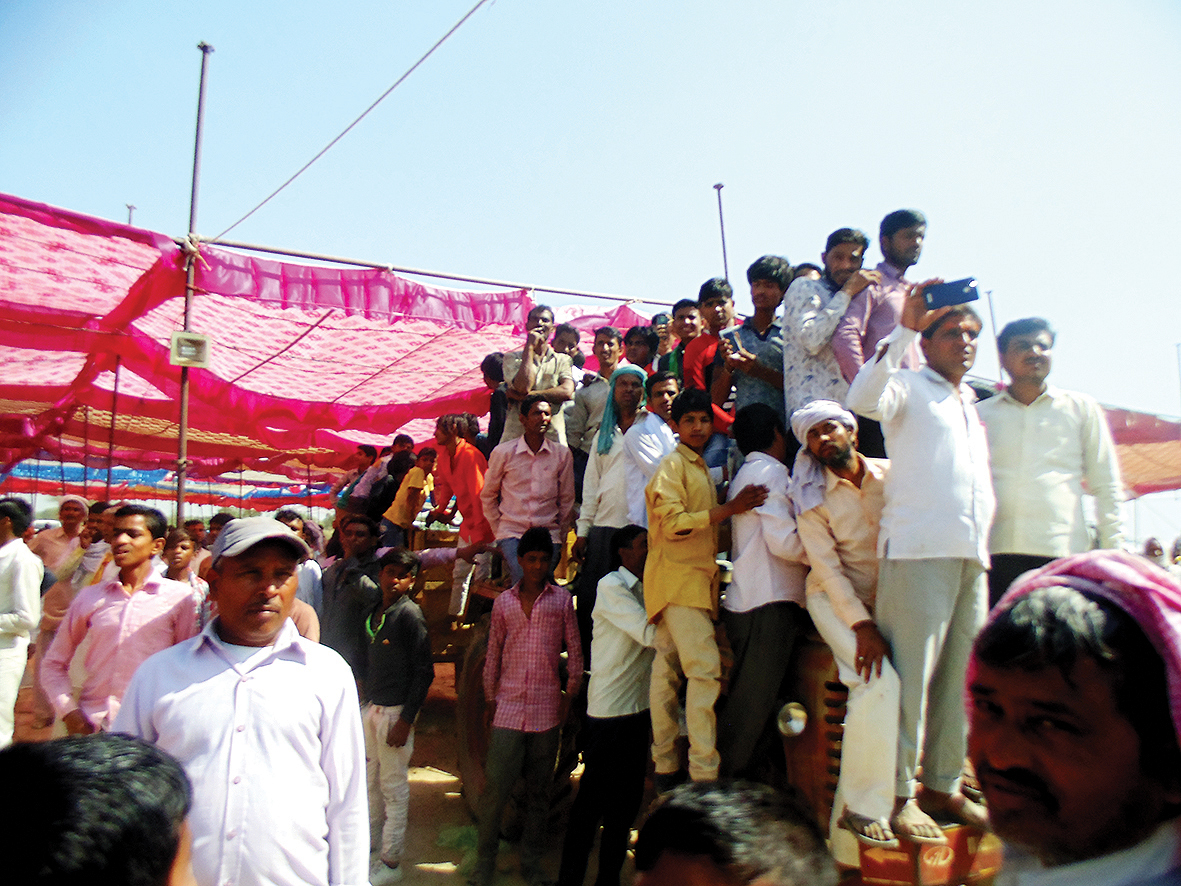Reporting in the hinterland gives a glimpse of the position of women in society, and the picture is not pretty
In the searing April heat of Mathura, camera around my neck, phone in pocket, notebook and pen at a 10-second backpack-to-hand distance — I was ready to run after Hema Malini as she visited villages in her constituency.
A little data on Uttar Pradesh shows where females stand. It has seen a declining child sex ratio from 2001’s 916 female live births to Census 2011’s 902, and one of the highest maternal mortality rates in the country. Here adult women have less education than adult men. UP government’s website shows male literacy rate at 79.24% which is 20% higher than the female literacy rate of 59.26%.
In Mathura itself, the female and male literacy rates stand at 56.89% and 81.97%, respectively.
These details give a glimpse of how society positions its women. Thus, seeing many women stand just outside their doors while men ran behind Hema Malini’s vehicle was not surprising. This is not a sweeping generalisation but one can see by the way they speak in front of men that they are made to feel smaller.
When female reporters make forays into such areas during election time or to explore a news story opportunity, we cause ripples in stagnant waters. Here I speak of my own experience.
Hoping to blend in — and also be accepted — I adopted the attire of the majority — kurta-pyjama and dupatta. But as I witnessed here and on previous occasions, it makes little difference to the people.
Here the crowd was more than confident to make me the subject instead. As we drove into villages behind the actor-turned-politician, I scrambled to take photos. Eyes trailed me, whispers blew like a breeze and their phones came out like a train moving at the speed of light.
This outsider running about taking photos was a memory they wanted to record for posterity. At one point, as I walked in front of the cavalcade of cars with groups of young boys and men, one stopped filming Malini’s car and instead made me the target of his smartphone.
Shove and roll
With every village we went to, the crowds kept getting bigger. People were being elbowed for a little space to view the over-crowded temporary stage. In this disarray, woman were being rudely pushed, the men and boys speaking to them as if they were cattle — but on second thoughts, then they would be treated
better.
Instead of joining the other journalists, mostly from TV covering this saga, I mostly stayed behind to listen in on people’s conversations. And while my attire fooled the men enough to snub me at first, the prop in my hand reminded them that I wasn’t to be messed around with.
A man in one rally however, cornered me to ask me my views. I must, he said, “satisfy him with a response”. Well, not one to take such idiocy seriously — my voice became baser than usual and I told him that my job was not to satisfy him with a response. Just that one line made his face crumble and shoulders droop.
I don’t know what he thought I would tell him. But this incident was one in several, of men exhibiting their belief that they are somehow superior.
There was a bunch of men standing at the outer periphery of a rally where thousands had shown up. Malini didn’t stay for long as the crowd was unruly, and her security evidently not the best. The men proclaimed, “Bechari dar gayi” (poor thing got scared).
Now whether it was the all-male, untethered crowd that freaked her out, or she just wanted to move on for some other reason, only she and the assistants know. But if a male politician had taken the decision to leave, I doubt men would be calling him bechara. I think they would have instead started making excuses for him such as: “Oh, he must have many rallies to attend, oh, he must have a meeting: He is a busy man, after all.”
Uttar Pradesh, at least its inner parts, reveals itself as a suffocating place for women. But this impression has been formed after visiting only six villages in a part of Mathura district, so perhaps I am wrong.
Somewhat similar but also different in some ways was my experience in the villages of Odisha. On one occasion I was asked to pose for selfies with complete strangers. I obliged as I was caught off guard and couldn’t come up with an excuse.
But on most occasions, women spoke up just as much as the men. They still would look at you funny, but I think that would happen to any city dweller.
One thing is for sure: The mutual respect came easier here than in UP.
There they were amused with my camera, as I would overhear men jeering, asking someone to take a photo of ‘this character’. But at the end of the day, I felt empowered. I was glad I could demonstrate to these men how a woman could do her job just as men did. That a photographer could run into a crowd, wiggle her way in and not cower at the back because that is what women are generally taught to do.





